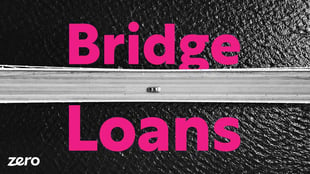What Are Mortgage Fees and Closing Costs?

Whenever you’re looking to buy a house, you’ll quickly realize there are a lot of fees associated with obtaining a mortgage. These fees can quickly add up, so it’s important to know exactly what you’re paying for. Some of the fees are non-negotiable and must be paid.
Other fees are layered into the agreement by the lender, and there is minimal benefit for the buyer. We’ll take a deep dive into mortgage fees and closing costs, and ultimately provide you with the facts that can help save you money
Have questions about the entire mortgage process? That's why we wrote this blog!
Understanding What Mortgage Fees and Closing Costs Are
If you’re like many of our clients, you may be wondering ‘what are mortgage fees’ and ‘how much do they cost’? We’ll be answering these questions below.
What Are Typical Closing Costs?
Buying or refinancing a property involves numerous third parties. These third parties will complete various services on your behalf, and charge a fee accordingly. The typical closing cost fee ranges from 2% - 6% of the home purchase price. For instance, if you buy a house for $300,000, expect to pay $6,000 - $18,000 in fees
Why Are Closing Costs Necessary?
Closing costs are necessary because there are various people and businesses involved in getting you approved for a mortgage. These companies need to be compensated for the services they provide, so they charge a fee for them.
Types of Closing Costs Fees
Below are some of the most common mortgage fees, and their purpose, new homeowners should expect to pay.
Appraisal Fee
Before a lender gives you money to purchase the property, they want to be sure the property is worth the amount of money you're requesting. The lender will require a home appraisal to be completed, which is simply a third party putting a fair valuation on the property or home.
The typical cost is usually less than $500. Not only does the home appraisal protect the lender, it also protects the buyer. Why would you want to pay $300,000 for a property with an appraised value of $220,000?
Home Inspection Fee
Getting your home inspected is not always required, but it’s foolish to neglect it. Most of us are not real estate or construction experts, we make our living in another career. When we tour a home, our eyes aren’t trained to identify and spot what’s commonly wrong with homes, or what will cause financial headaches a few years down the road.
A professional home inspector does just that. A home inspector typically costs a few hundred dollars, but can help you save a significant amount of money down the road. They will look at the heating and cooling unit, exposed plumbing, appliances, the electrical unit, the roof and chimney and even inspect the basement and exposed foundation for water damage.
If anything is identified during the inspection process, you can always negotiate a credit applied at closing, or price reduction before buying the property, or you can simply pull out of the deal entirely if you choose
Loan Origination Fee
A loan origination fee pays for the administrative costs the lender has while processing your loan. The origination fee is usually no more than 1% of the total loan value, and not all lenders have this fee.
Application Fee
The application fee is another fee some lenders charge to cover administrative costs. Like the origination fee, all lenders do not charge this fee. This fee is minimal, and some lenders are willing to waive it if there is any pushback given.
Credit Report Fee
There’s always a fee to formally pull your credit report from the main credit reporting bureaus. This fee is typically less than $30, so it certainly won't break the bank. The purpose of this fee is so the lender can get visibility into your credit history, allowing them to determine if you qualify for a loan and how much loan you qualify for.
Document Preparation Fee
Before the loan is finalized, there is a document preparation fee. This fee covers the cost to prepare legal papers, and the cost to notarize document
Can You Save Money on Mortgage Fees?
Just because a lender is charging mortgage fees doesn’t mean the price you see is the price you need to pay! There is some room to negotiate and the following information will help you save some money!
Get Several Loan Estimates
Whenever you’re making a large financial purchase, it’s always wise to get a few quotes before moving forward in a specific direction. That principal couldn’t be more true in the mortgage industry. Be sure to do your homework and get a few loan estimates.
Find which lender is offering the most competitive package and service, and ultimately go in that direction. A slight savings on the interest rate will save you a considerable amount of money over the life of the loan!
Avoid or Minimize "Junk Fees"
While it’s important to get a few quotes, be sure you’re getting quotes from reputable lenders. There are brokers that layer in “junk fees” to the mortgage agreement, and these fees can add up.
What’s a junk fee? Anything you truly don’t need, or a duplication of an existing fee with different terminology associated with it
Shop for or Negotiate Fees You Can Control
There are some mortgage fees where you are in complete control. You can either choose to avoid paying the fee entirely and take matters in your own hands, or triple bid the price to find the best deal possible.
These fees include:
Buyer's Attorney
A buyer’s attorney isn’t required in all states, but it’s a wise decision to use one. After all, your real estate transaction may be the biggest financial transaction of your life, it makes sense to have a trained professional review the agreement before you sign.
You can use your own attorney if you so choose, and you can certainly price shop which attorney is offering the most competitive price.
Pest Inspector
Although not always required, some government sponsored mortgages may require the borrower to have the house inspected for pests. If your home has dry rot or termite damage, it can be rather costly to repair and eliminate the problem.
There are likely a few pest control companies in your area, and you should contact each of them for a quote. Even if it’s not required, for just a few hundred dollars you can have peace of mind, or avoid a financial loss down the road.
Homeowners Insurance
Similar to vehicle insurance, if you own a house, you need to carry homeowners insurance. Your existing auto insurance company may have deals if you bundle your home and auto insurance, but it’s encouraged to quote your insurance coverage across a few different companies.
You are not obligated to go with a specific company or agency, so exercise that freedom and look to save money if/where possible!
Title Insurance and Related Services
Title insurance is designed to protect the homeowner in the event someone claims ownership of the land or property that you were unaware of. This is not always required, but recommended by many legal and real estate professionals.
Considering the potential downside, a fee of 0.5% - 1% is easy to digest, as it will guarantee and protect your rights to own the property you just purchased.
Survey
Surveying your land helps you understand exactly where your property line ends. Having this understanding is important for a few different reasons. Most commonly, homeowners may want to put up a fence surrounding their property.
Before they do so, a land survey will indicate exactly where your property line starts and ends, which is important if you don’t want to upset any neighbors
Our Mortgage Learning Center features blogs on a wide range of mortgage and refinancing topics.
Choosing Your Lender When Applying For a Mortgage Online
If you’re looking for a mortgage, or looking to refinance an existing mortgage, you may be inclined to work with your local bank. After all, the tellers are likely trying to upsell you and have you meet with the branch's loan officer. Working with your bank may be convenient, but it’s not always the best option.
There are specific lenders who specialize in mortgages - that’s the only product they offer. These lenders tend to have the most competitive packages, and can help you navigate through the waters more efficiently.
Lock in a Great Rate Today!
This page last updated: October 6, 2022
Read more on this topic below.

When you buy a house and start making mortgage payments, your payment consists of four different components, known...

If you have gone through the pre-approval process but need to take a deeper dive into how much house to buy,...

The vast majority of mortgage loans require you to put down a certain percentage of the selling price upfront....

Whether you’re a first-time buyer or you’ve purchased a home before, you’ve likely heard of a homeowner’s association....

People buy their homes for a number of reasons. Affordability, stability, and comfort are some of the most...

Mortgage brokers play an integral and active role in the mortgage market, offering customers a service not made...

There’s a lot of expenses to keep in mind when you’re thinking about buying a home. Between the price of the home, property taxes, your mortgage...

Conventional loans are mortgages offered by private lenders, banks, and institutions that are not backed by the government. Unlike FHA, USDA,...

Some homebuyers refuse to purchase a property if it is part of a property owner association. On the...

Research indicates that 58% of homeowners in HOA communities and single-family homes pay an average monthly fee...

Private mortgage insurance is something millions of homeowners pay for each year. However, this type of insurance does not protect

When you first set out to buy a home, it can feel like you’re taking an exam you forgot to study for. You have to make quick...

When looking to refinance or buy a house, the pre-qualified vs pre-approved mortgage debate can be...

A home doesn’t just fall into foreclosure status. There are stages and processes that take place behind the scenes before...

It’s likely that your mortgage loan will be the largest loan you have during your lifetime. Mortgages are not a one size...

For many people, owning a home is part of the American dream. To make this dream a reality, most people will take out a...

A bridge loan is a short-term loan a borrower may use while a more long-term financing contract is finalized. Bridge...

A loan estimate is crucial to obtain when looking for a loan. This estimate not only gives you the details of a mortgage but also compares offers...

There are many moving parts and various people you’ll deal with throughout the homebuying process....

If you’re looking to buy a house, and do not have a mountain of cash saved up, you’ll need to consider getting a mortgage to help you finance this...

If you find a property that you’re highly interested in buying but are concerned that the seller might choose...

Buying a home? You’ll likely need to get it appraised before you receive the clear to close. If you’re wondering...

If you’re an active service member, a veteran, or the surviving spouse of a veteran, and you want to ...

There’s no doubt, COVID-19 changed the world in countless ways and took us all by surprise. From an...

Whenever you are borrowing money, whether it’s for a new mortgage, a refinance, credit card, or car loan, you’ll hear...

If you’re new to buying a home, you probably have quickly realized the overwhelming amount of options there...

If you’ve already gone through the lengthy process of writing offers, securing financing, and arranging inspections for your...

One of the most important steps to buying a home is deciding on a mortgage loan and deciding on a loan involves settling on a good...

First time home buyers are often surprised when they learn about all of the expenses that are associated with ...

Purchasing real estate is not as simple as finding the right home, submitting an offer, and signing the closing paperwork; many...
